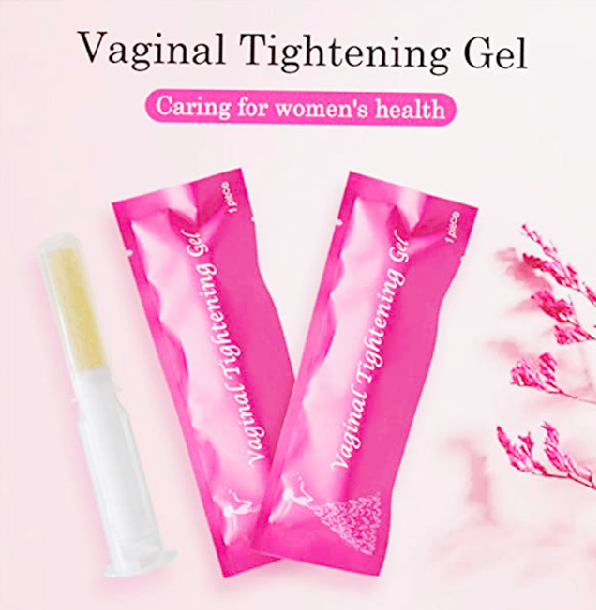
Are vaginal tightening gels, creams safe?
In recent years, there has been an alarming increase in the number of topical gels and creams on the Ghanaian market purporting to tighten the vagina. Whether or not these gels and creams are safe or effective is the question this article seeks to answer.
Changes over time
Advertisement
Vaginal tightening is the process of strengthening and increasing the muscles and tone of the vaginal walls to enhance its elasticity and tightness.
The vagina is the stretchable muscular part of the female genital tract.
It is the organ that allows sexual intercourse and childbirth. It is initially tight and stiff during a female’s younger years and before childbirth due to constant production of elastin and collagen.
When aroused during intercourse, the vaginal muscles relax and then return to its regular shape or size afterwards.
Although childbirth and ageing may weaken the vaginal walls, it should be noted that these processes are normal.
In fact, most women do not observe significant changes in the vaginal area after childbirth or with ageing. Some women, however, complain of looseness, thinning, dryness, or sexual dysfunction after these occurrences.
To address these issues, some women resort to the use of substances like creams, and gels for vaginal rejuvenation purported to contain astringent properties that claim to provide vaginal tightening, sexual satisfaction, and lubrication.
The Myths
There are claims to convince people that natural ingredients in these vaginal products are effective.
However, almost every drug is derived from biological or natural sources but can cause severe irritations.
The application of a topical gel does not tone the vaginal muscles.
It merely creates a superficial constriction of the vaginal tissue.
Women need to know that feeling a difference after the use of these tightening products does not mean tighter.
The jargons of ‘natural ingredients’ should not mislead women. Science does not back these claims.
The Facts
The natural astringents like alcohols and witch hazel in vaginal tightening formulations dries up the moisture from the vaginal walls and, therefore, creates the perception of a temporary tightening effect.
Most of these natural ingredients are, in fact, humectants that tend to have limited moisturisation properties.
These gels dry out the mucosa that forms the lining of the vaginal walls and reduce lubrication.
The lack of lubrication stimulates friction and tear of the vaginal lining, which could result in uncontrollable pain.
Friction also causes irritation, inflammation and swelling of the vaginal lining. It should be noted that the process of growing, and ageing slows down the production of collagen and elastin.
As collagen decreases, the muscle of the pelvic floor weakens and, therefore, it is impossible that a cream or gel can tighten the vaginal walls. Simply put, these vaginal remedies simply do not work as claimed!

The Dangers
The introduction of any external product disturbs the pH and natural bacteria of the vagina.
The application of unwanted remedies may kill the natural bacteria of the vagina which may result in vaginal infections.
The vagina lubricates, hydrates, and cleanses itself with the presence of its natural bacteria. Research conducted by M. Diane McKee et al. indicates that the excessive use of douches may be linked to vaginal infections that can disrupt the endocrine or the pituitary glands resulting in hormonal imbalance.
It must be noted that these gels and creams are unregulated, and their use and application should not be encouraged. Vaginal tightening gels or creams have not been registered by the country’sFood and Drugs Authority (FDA), or any other well-established regulatory authority in any part of the world, because there is no scientific proof or physiological basis to establish such claims.
Interventions
The FDA, Ghana, has undertaken several media and stakeholder engagements to educate consumers and the public on the dangers of these vagina tightening products. The FDA, in collaboration with the security services, is to clamp down on perpetrators of the unlawful acts of advertisements, distribution and sale of these unregistered products. Post Market Surveillance activities and monitoring by the FDA is ongoing and offenders will face the necessary regulatory sanctions.
Recommendations
Scientists indicate that exercise can improve the tone of the female pelvic floor muscles, however, it has little effect on the tightening of the vaginal walls. This can significantly improve on sexual health. It is surely a beneficial and cost-effective process compared to the relatively expensive, unsafe, and untested vaginal tightening products.
Another option is the Kegel exercise, which may show some results but only for a limited period. Surgery has also been stated to be an option, but this may be associated with bleeding and reduction of sensitivity.
Awareness should be created through the media about the dangers associated with these products. Topics on such issues should not be seen as taboo; and should be frequently discussed in churches, mosques, schools etc.
There is the need for extensive research and long-term studies into these products by scientists to aid in policy making and public health protection.
In conclusion, women are advised to stay away from these vaginal tightening products because their use and application has resultant adverse effects such as infertility, endometritis, and genital infections.
The writer is a Senior Regulatory Officer. She holds MSc. in Cosmetic Science. Email: [email protected]




